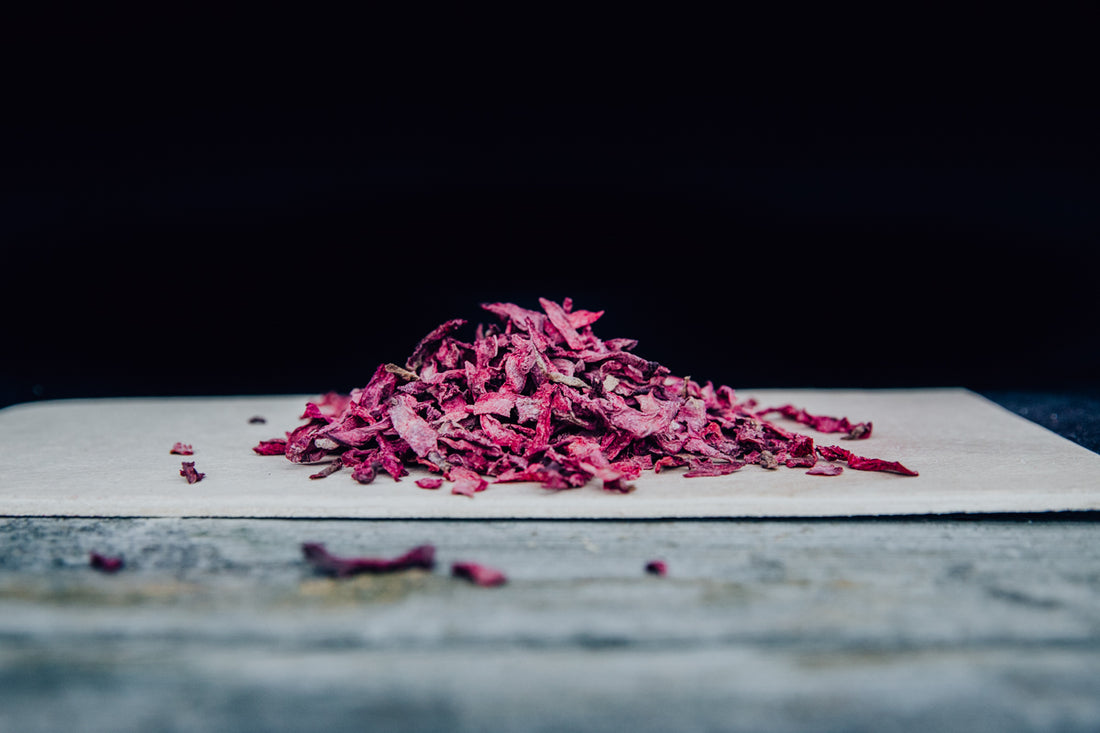Natural horse feeding is based on plants, herbs, seeds, berries, trees and bushes, lichen, algae etc. that can be found in nature. Our horses no longer graze in the wild and freely sample different plants and herbs in nature according to their own will and need. A wild horse would eat hundreds of different plant species and gain an abundance of different versatile nutrients! Nowadays horses are mostly fed with cultivated hay and a few other selected concentrated feed types that almost without exception require different vitamins and trace elements alongside them to meet the necessary physical requirements. The nutrients of dry hay are completely different from freshly picked plants. The majority of pastureland these days is grass. If the pasture is varied in its plant species, horses choose different plants around the pasture. Hay and clovers may be tasty, but taste isn’t the only decisive factor. Plants with furrowed stems, such as yarrow, meadowsweet and dwarf shrubs, increase chewing and salivation. Meanwhile dandelion and nettle contain plenty of vitamins and minerals, tree bark is rich in phenols, tannins and terpenes and so forth.
HERBS DIVERSIFY NUTRITION
Although wild pastures are becoming increasingly rare, the diversity offered by them can be partially compensated for by adding various herbs, berries, seeds and plants to horse feed. Herbs and vegetables diversify the often one-sided fodder of modern horses, increase salivation and support digestion.
Herbs have traditionally been used for medicine, expelling insects and treating wounds, rashes etc. Herbs are useful for various different ailments and problems and in the best cases can be used to prevent them by nutritional means. Many horse owners wrestling with stomach troubles use herbal blends for daily complementary feed and can increase the quality of life of their horses this way. Herbs can also be used for hot-headed mares who refuse to behave at a certain time of the month, stressed horses, skin care and respiratory health or, for example, ensuring joint functions and mobility.
Herbs are designed to diversify nutrition, ensure the intake of essential nutrients and support and activate the body’s own natural functions. Herbs are not meant to replace medicine.
Herbs and vegetables are a natural alternative for improving your horse’s state of nutrition, and they put less strain on the body than industrially manufactured products. Nutrients in herbs and other natural products have better absorption than synthetic ones. Vitamins, trace elements and minerals from natural feed do not cause risk of overdosing or poisoning. Therefore feeding them in the correct way is safe, and the required dosages are smaller than with industrial products.
Keep in mind that if you are competing, you should always check the possible doping safety period of herbs. Careful consideration is also encouraged in feeding pregnant mares. It is recommended to always discuss with a vet before you give medicinal herbs to foals or pregnant or sick animals.
It should be kept in mind that horses have slow digestion, and the feed and its active ingredients remain in the horse’s intestines for approximately 72 hours and keep increasing in concentration over time.


